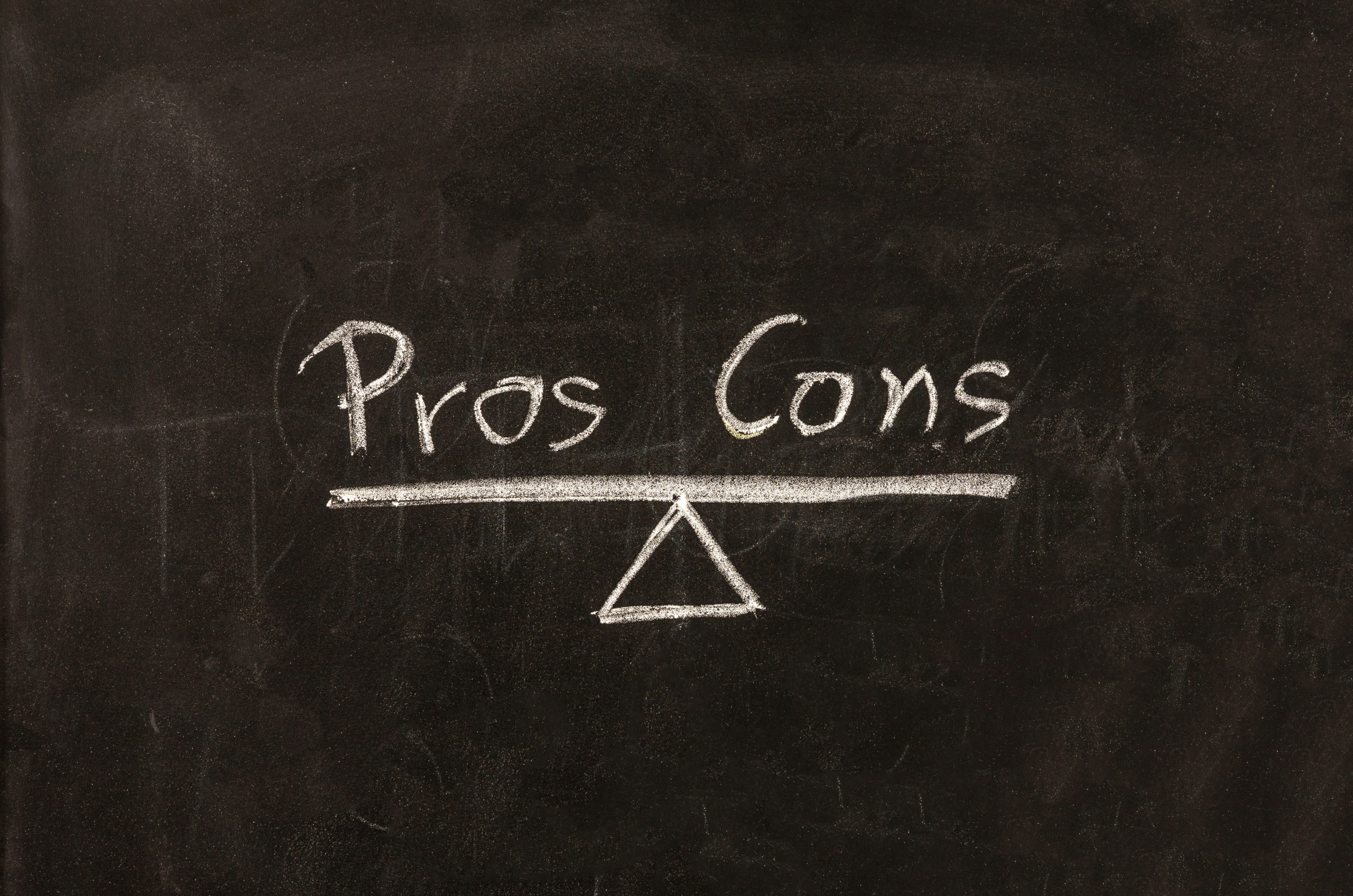
When you are trying to figure out how to pay off your debts, one of the options you will likely come across is debt settlement. Debt settlement involves negotiating with a creditor to make a lump-sum payment and settle your debt for less than what is owed.
Agreeing to a debt settlement (often with help from a debt settlement company like National Debt Relief) can put you on the path toward financial independence. But it does come with both advantages and disadvantages. Follow along to determine if this option is right for you.
Pros of debt settlement:
- Avoiding bankruptcy. It offers a way to avoid declaring bankruptcy. A bankruptcy generally stays on your credit report for 10 years and has the potential to do even more damage in the long run.
- Saving money. One of the biggest pros of debt settlement is the potential to wipe out debt for less than the amount you owe. For instance, you might owe $20,000 to a credit card issuer, but they are willing to accept a lump sum of $15,000 to wipe out the entire debt.
- Saving time. A debt settlement might take two to four years to complete, compared with three to five years for Chapter 13 bankruptcy, debt consolidation or debt management.
- Stopping calls from debt collectors. Once you have settled a debt, those pesky calls, emails and other contact from debt collectors will stop once and for all. No longer being pestered by debt collectors can decrease your stress.
- Steering clear of legal trouble. When you agree to settle a debt, you might be able to avoid being sued by a creditor to recover the money they are owed.
Cons of debt settlement
- Paying fees. Fees charged by debt settlement companies typically range from 15% to 25% of the amount of debt that is enrolled in a debt settlement program. You will still pay less than if you hadn’t gone this route. It is important to note that any legitimate company will NEVER charge upfront fees. It is unethical and illegal!
- Coming up with money for the settlement. If you get the go-ahead to settle a debt, you will be required to come up with a lump sum of money to make this happen. National Debt Relief and other legitimate debt settlement providers require a client to make monthly deposits into a savings account in your name. Once the account contains enough money for a lump-sum settlement, a creditor is paid off. This continues until you are debt free.
- Being unable to settle all your debts. Reputable debt settlement companies like National Debt Relief only handle unsecured debts like credit cards, personal loans, medical bills, cellphone bills and rent payments. They do not help consumers reduce or eliminate secured debts such as mortgages, auto loans, child support and past-due taxes. If you have $10k or more in unsecured debt, this option could get your finances back on track.
- Paying taxes on settled debt. Forgiven debt, such as debt eliminated in a debt settlement, is subject to federal taxes.
- Seeing the debt settlement on your credit report. Settled debt can temporarily put a dent in your credit score as payment history represents the # 1 factor in calculating your credit score. But if you don’t pay off your debt, your credit score will be much lower.
Alternatives to debt settlement:
- Taking out a debt consolidation loan. A debt consolidation loan can simplify your finances by lumping several monthly debts into one payment. It also might enable you to score an interest rate that is lower than the overall rate on your existing debts. However, if your credit has recently taken a hit, it might be tough to qualify for a low-interest debt consolidation loan.
- Settling the debt on your own. While this can keep you from paying fees to a debt collection company, it will likely mean more time and energy spent on your part. You will be responsible for negotiating with each of your creditors.
- Seeking help from a credit counselor. A nonprofit consumer credit counseling agency can work with you to create a budget that is aimed at giving you more control over your debts. You are still responsible for negotiating and paying off the loans.
- Enrolling in a debt management plan. A nonprofit credit counselor might recommend that you sign up for a debt management plan. This type of plan is designed to lower interest rates on debts. Plus, it rolls your debts into one monthly payment that you make to the credit counseling agency.
- Filing for bankruptcy. As a last resort, you might have no choice but to declare bankruptcy. Chapter 7 bankruptcy will erase all your debts, while Chapter 13 gives you three to five years to pay off your debts. This causes serious, long-lasting damage to your credit.
National Debt Relief Is Here for You
National Debt Relief has more than a decade of experience negotiating with credit card companies to get the best payment settlements possible. Our team of debt coaches doesn’t just negotiate with creditors on your behalf to significantly lower your credit card debt. We also work with you to ensure that you are learning and practicing powerful financial strategies to remain debt free and get a fresh start after the program is completed.
Looking for the best way to pay off your credit card debt? A debt coach at National Debt Relief will go over your options to determine which path to debt relief will work best for you. Get a free, no-obligation consultation today.


